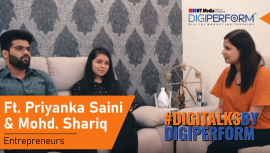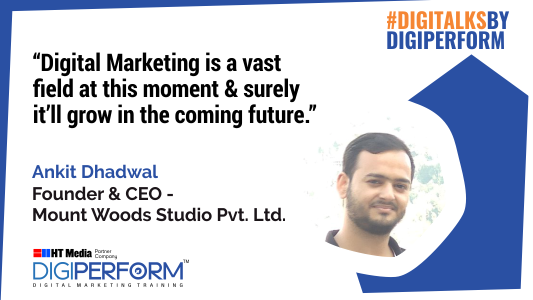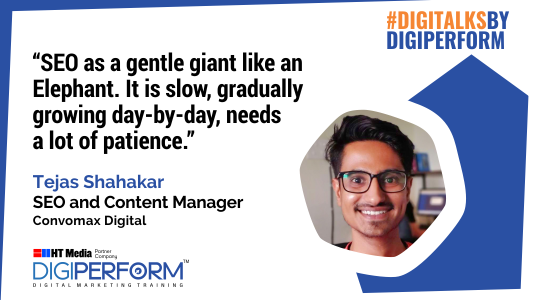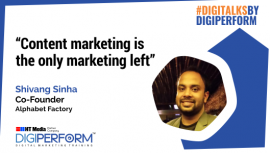Please walk us through your background and tell us how did the idea of starting SquareFoot comes to you?
First, I had the idea. Second, came the technology. Then I had to really learn.
Although I always craved to be the CEO of my own company, I never expected I’d be building my company on the foundation of sound digital marketing. Marketing wasn’t something I knew much about, or really, to be honest, had much interest in. My experience before I founded my company, SquareFoot, was in finance and commercial real estate. This industry has long relied on relationships to drive business, not innovation.
What were the challenges for you and How did you acquire clients?
However, upon launching SquareFoot in 2011, I had to have a serious look at how I was planning to acquire my clients. I had some contacts at my disposal, from several years of working before I went to business school and then started SquareFoot. But that wouldn’t be a long-term plan I could depend on, especially at the beginning before I had built up my client base and established my company name as a viable choice. So I had to do some soul-searching to get people as excited about what I was building as I was to get started looking for office spaces with them in major metropolitan cities.
So, what strategy did you apply?
I turned to the resource I always use: Google. I began to read about the basics of digital marketing and organic search. Suddenly, it became clear to me that the executives like me would likely be searching online for real estate solutions… because that’s what I knew I’d do when faced with a similar predicament. I invested a lot of time and a small budget into establishing good technical SEO to make SquareFoot a place to turn to when you needed to look for new office space. If people were already searching for what we offered, I figured, I wanted to be there for them on the other side of their searches.
What role does SEO play for your business?
SEO isn’t simply about reeling people into your site, though. Good user experience is crucial to success. I quickly realized that I had something they could benefit from – a commercial listings platform for them to sample free of charge, the first of its kind. If residential listings platforms were popular, it stood to reason that this was the type of thing people would similarly embrace, when the time was right to look around, to assess what different neighborhoods cost, and to turn to us when the time came to show spaces and to complete their deals.
How do you think ways of marketing have evolved and what has changed over the years when it comes to reaching out to people? Also, what has been your approach to clients?
It was arguably easier for me to start my own company, and to build the platform I desired than it was in those early days to find those first clients. I invested, too, in a company blog where we provided resources and information for the first-time office-seeker to help guide them through a process that can take many months, start to finish. Transparency emerged early on as the backbone through which we would operate. We felt that a more well-informed client case would lead us to have higher-quality conversations and to close deals faster because we weren’t starting at Square One every time. This approach ran contrary to how the industry had opted to run until that point, instead of bundling and packaging the shortage of information publicly available as expertise on the parts of a company’s staff of brokers. We set out to do things differently.
Considering your background was not marketing, what did you do to master it?
I had to give myself a masterclass in marketing. I began to research and to understand keywords, to think carefully about audience types and where those particular people hung out online and otherwise, and to develop an area of skills and thinking that hadn’t been my strong suit until that period of time. I sat in on sessions related to how to construct the website and new product offerings that would appeal to algorithms, and to make sure that the direction(s) I took the company reflected and was supported by our online search strategy, too. Marketing would be the mechanism to drive the right people to us, and I had to be the primary leader at the company who displayed an active interest in growing in my own role to uncover and to reveal the additional opportunities.
What will be your advice for aspiring entrepreneurs who want to start now?
When you’re building a company, you often have to work on multiple things at once. As I learned more about digital marketing generally and organic search more specifically, I recognized some similarities between the concepts of that discipline and real estate. Both rely heavily on long-term relationship building. These messages resonated with me because in a way I’d already been doing it. I just hadn’t applied those mechanisms and investments until that point in a digital version toward pursuing business development. We could find more possibilities by offering more to our potential clients. That made a whole lot of sense to me right off the bat. To other aspiring entrepreneurs, I’d recommend having ongoing peeks at and conversations about whether there are dozens if not hundreds of customers waiting for and searching online for a service like yours. If your premise is right, the promise will show itself.
Related Posts
Support your brand through Social Media Marketing -Priyanka Saini & Mohd. Shariq
With more young people than ever before setting up in business on their own, many are turning to the internet to share their experiences and grow. Priyanka Saini was 18 years old when she started working. She took small steps...
An interview with SEO and Content Manager, Tejas Shahakar
Meet Tejas Shahakar who is working as an SEO and Content Manager at Convomax Digital. He's a B.Tech Graduate (Computer Science) who has a great passion for writing since his school.
Content marketing is the only marketing left.- Shivang Sinha
Content marketing is a commitment, not a campaign. This is well accompanied by one of the growing entrepreneur and content strategist – Shivang Sinha who believes he’s a “Born Entrepreneur“. Shivang is the co-founder of Alphabet Factory and leading Vocabberry...
Book Free Trial Class
We respect your privacy.

Free Data Science Career Unlock Workshop
Lets Talk : 91 966 755 1500




